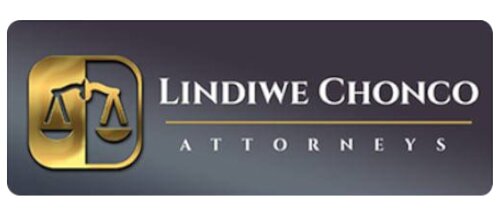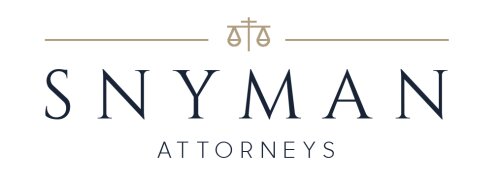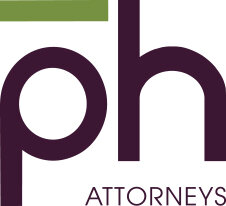Best Employment Rights Lawyers in South Africa
Share your needs with us, get contacted by law firms.
Free. Takes 2 min.
Or refine your search by selecting a city:
List of the best lawyers in South Africa
About Employment Rights Law in South Africa
Employment Rights in South Africa are governed by a range of legislation designed to protect the interests of both employers and employees. This includes ensuring fair treatment, equal opportunities, and safe working conditions. Key legislation includes the Labour Relations Act, the Basic Conditions of Employment Act, and the Employment Equity Act, all of which serve to promote worker protection, equality, and fair labor practices. The South African legal framework is considered robust in comparison to many other countries, reflecting its commitment to uphold basic human rights within the workplace.
Why You May Need a Lawyer
There are several reasons why individuals might seek legal assistance related to Employment Rights. Common situations include unfair dismissals, workplace discrimination, salary disputes, and issues related to contractual obligations. Seeking legal help can also be crucial when navigating complex employment contracts, understanding severance packages, or resolving issues related to workplace harassment. Lawyers specializing in Employment Rights can offer guidance, represent individuals in disputes, and ensure compliance with applicable laws.
Local Laws Overview
South Africa's Employment Rights are primarily regulated by:
- Labour Relations Act (LRA): Focuses on collective bargaining, employee participation in decision-making, and resolvable disputes.
- Basic Conditions of Employment Act (BCEA): Sets minimum standards for working hours, leave entitlements, and termination procedures.
- Employment Equity Act (EEA): Promotes equal opportunity and fair treatment in the workplace through the elimination of unfair discrimination.
- Occupational Health and Safety Act (OHS): Ensures safe and healthy working conditions.
The Department of Employment and Labour is responsible for enforcing these laws, ensuring fair and equitable treatment of all workers.
Frequently Asked Questions
What constitutes unfair dismissal in South Africa?
An unfair dismissal occurs when an employee is terminated without a fair procedure or without a valid reason as outlined in the Labour Relations Act.
How does one file a complaint about workplace discrimination?
Complaints can be filed with the Commission for Conciliation, Mediation and Arbitration (CCMA) or the Labour Court, where issues of discrimination can be addressed.
What is the minimum wage in South Africa?
As of the latest amendments, South Africa's national minimum wage is set by the government and is subject to annual review. It's important to check with the Department of Employment and Labour for current rates.
What legal rights do employees have during a retrenchment process?
Employees are entitled to fair retrenchment processes which include proper consultation, notice, and severance pay, as guided by the Labour Relations Act.
How are overtime payments regulated?
The Basic Conditions of Employment Act outlines that employees must be paid extra for overtime hours at a rate of at least 1.5 times their normal wage.
What protections exist for maternity leave?
Women are entitled to at least four months of unpaid maternity leave. Many employers offer additional benefits which should be reviewed in the employment contract.
How can an employee challenge a salary or wage dispute?
Employees can challenge salary disputes through the CCMA or relevant bargaining councils for mediation and resolution.
Are employees entitled to annual leave?
Yes, full-time employees are entitled to a minimum of 21 consecutive days of paid annual leave per year, as per the Basic Conditions of Employment Act.
What kind of contracts are considered valid employment contracts?
As per South African law, employment contracts can be verbal or written, but a written contract that outlines terms and conditions is strongly recommended for clarity and legal protection.
What support exists for workplace harassment victims?
Victims can report cases of harassment to their HR department, or escalate it to the CCMA or Labour Court for legal intervention.
Additional Resources
For additional information and assistance, individuals can contact:
- Department of Employment and Labour: Provides resources and information on workplace rights.
- Commission for Conciliation, Mediation and Arbitration (CCMA): Assists with resolving labor disputes and issues.
- South African Human Rights Commission (SAHRC): Advocates for human rights, including fair treatment in workplaces.
Next Steps
If you find yourself facing employment issues and need legal assistance, consider the following steps:
- Documentation: Gather all relevant documentation, such as contracts, letters, emails, and any relevant communication.
- Seek Legal Advice: Contact a lawyer specializing in Employment Rights to discuss your case and explore your options.
- Consult Local Bodies: Engage with the CCMA or a relevant body for mediation or advice.
- Understand Your Rights: Familiarize yourself with the employment laws relevant to your issue.
Taking these steps can help ensure you are well-prepared and informed as you navigate the complexities of employment law in South Africa.
Lawzana helps you find the best lawyers and law firms in South Africa through a curated and pre-screened list of qualified legal professionals. Our platform offers rankings and detailed profiles of attorneys and law firms, allowing you to compare based on practice areas, including Employment Rights, experience, and client feedback.
Each profile includes a description of the firm's areas of practice, client reviews, team members and partners, year of establishment, spoken languages, office locations, contact information, social media presence, and any published articles or resources. Most firms on our platform speak English and are experienced in both local and international legal matters.
Get a quote from top-rated law firms in South Africa — quickly, securely, and without unnecessary hassle.
Disclaimer:
The information provided on this page is for general informational purposes only and does not constitute legal advice. While we strive to ensure the accuracy and relevance of the content, legal information may change over time, and interpretations of the law can vary. You should always consult with a qualified legal professional for advice specific to your situation.
We disclaim all liability for actions taken or not taken based on the content of this page. If you believe any information is incorrect or outdated, please contact us, and we will review and update it where appropriate.
Browse employment rights law firms by city in South Africa
Refine your search by selecting a city.















